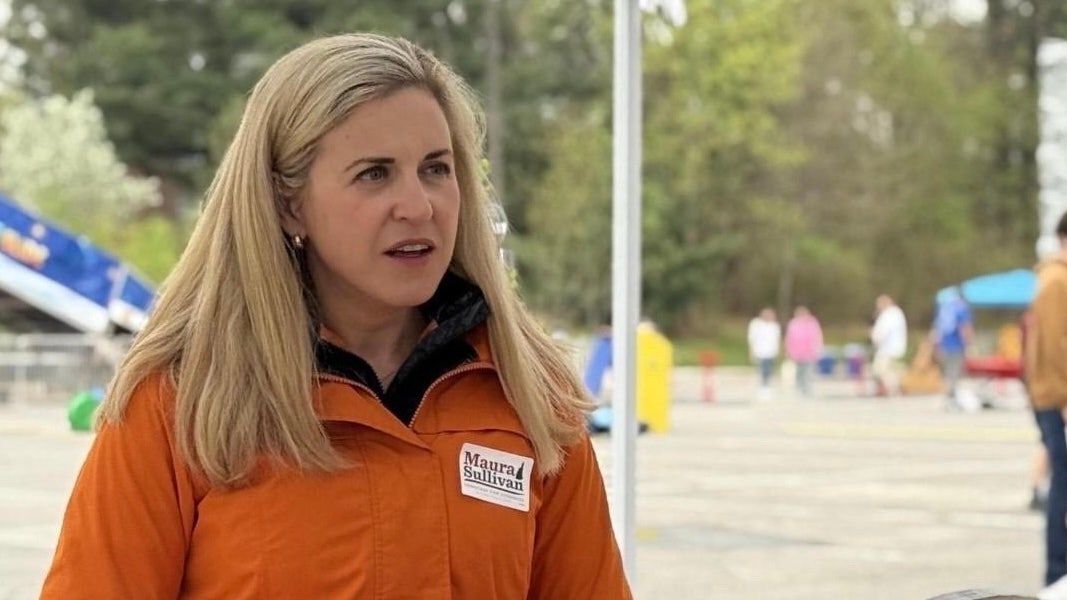NH Republicans slam Democrat’s photo with controversial ’86 47′ sign

New Hampshire Congressional Candidate Faces Backlash Over Photo at Protest
Republicans in swing state New Hampshire are up in arms over a recent photo posted by Democratic congressional candidate Maura Sullivan. The photo shows Sullivan standing next to a fellow veteran holding a sign that reads “Veterans for Democracy,” but also includes the phrases “Foxtrot Delta Tango” and “86 47.”
The phrase “Foxtrot Delta Tango” is seen as a derogatory term towards President Donald Trump, while “86 47” has been interpreted by some as a message suggesting violence against the president. Sullivan, a former Marine Corps officer with a background in military and government service, attended a “No Kings” protest in Portsmouth, N.H., over the weekend. The protest, part of a nationwide movement, aimed to denounce what demonstrators see as Trump’s anti-democratic actions and authoritarian tendencies.
The controversy surrounding Sullivan’s photo comes on the heels of a tragic incident in Minnesota, where two leading Democratic state lawmakers were shot, one fatally. The shootings appear to be politically motivated, adding fuel to the fire of political tensions in the country.
In response to the backlash, Sullivan’s campaign manager, Nick London, issued a statement emphasizing Sullivan’s commitment to non-violence in politics. “Maura is outraged and heartbroken about the assassination of a public servant in Minnesota. She believes that there is absolutely no place for violence in our politics, regardless of party or affiliation,” London stated.
Despite the campaign’s efforts to clarify Sullivan’s stance, Republicans in New Hampshire have condemned her actions. State GOP chair Jim MacEachern criticized Sullivan for aligning with the “extreme radical left” and called her post a call for political violence. NHGOP vice chair Hollie Novoletsky also weighed in, highlighting the unacceptable nature of political violence, regardless of the target.
The National Republican Congressional Committee (NRCC) went a step further, calling for Sullivan to apologize, remove the photo, and withdraw from the congressional race. NRCC spokeswoman Maureen O’Toole labeled the photo as “dangerous and disqualifying,” emphasizing that political violence has no place in American society.
As the controversy continues to unfold, the political landscape in New Hampshire’s 1st Congressional District remains tense. Sullivan’s actions have sparked a heated debate over the boundaries of political discourse and the role of symbolism in public demonstrations. With the 2026 midterm elections looming, the fallout from this incident could have far-reaching implications for the candidates and the voters they seek to represent.




